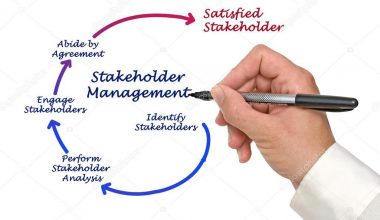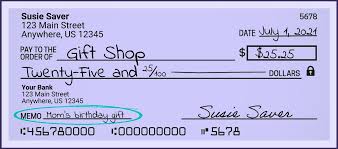To figure out what an executive coach is, we must first look at what coaching means. The International Coach Federation (ICF) says that coaching is a relationship with clients in a creative and thought-provoking process that motivates them to reach their full personal and professional potential. Because the client is in charge of the coaching, it differs from other service jobs like counseling, mentoring, consulting, and training. However, in this article, we will discuss executive coaching, executive coaching salary, courses, and services. Also, we will explore leadership executive coaching.
Executive Coaching
This similar to business coaching, is training that helps motivated, goal-oriented professionals who want to do well in their present or future jobs improve their leadership skills and executive functioning. Executive coaching is mostly action-based and aims to make workers smarter, more aware, and more driven.
Coaching is a method that is made to fit each person’s unique set of skills and situations. The connection between a teacher and a client is very important. Coaches work with people or groups, giving them a different point of view and acting as a sounding board and a screen for reflection.
Coaches assist individuals in seeing themselves more clearly – and compassionately. They teach them how to use both their strengths and weaknesses to their advantage. Also, coaches can help people figure out what their goals are and come up with a plan to help them reach them.
Read Also: Is it Worth Looking Into Executive Coaching Tips?
Leadership Executive Coaching
In executive leadership coaching, executives and experienced coaches form close relationships that help both the executives’ professional and personal growth and success. The client is involved, the coaching process is unique, it evolves over time, and the client is in charge. Coaches help executives develop their leadership skills, make plans for their careers, list their personal beliefs, figure out their short-term and long-term job goals, improve their ability to make decisions, come up with ways to improve their performance and boost their self-confidence. Executives turn to coaches for help and advice when they are dealing with professional problems, deciding whether or not to start their own business or making strategic plans to increase the impact of their business or organization. Some executive trainers also help their clients with their careers in the real world. They may help leaders look for jobs, connect them with other people, prepare for interviews, and negotiate their salaries.
Executive Coaching Salary
As of June 26, 2023, the average Executive Coaching salary in the United States is $106,219, but salaries usually run from $85,429 to $144,133. Salary ranges can be very different based on many important factors, such as schooling, certifications, additional skills, and the number of years you have worked in your field.
Factors Influencing Executive Coaching Salary
Now that we know the basics, let’s talk about what affects executive coaching pay. Like with any job, not all rates are the same. Several things can have a big impact on how much you can make as an executive coach.
#1. Experience and Expertise
Let’s begin with expertise and experience. The more experience you have and the more specialized information you have, the more money you can make as an executive coach.
Consider this: If you’ve been successfully coaching executives for several years, you’re likely to have a track record of satisfied clients and measurable results. This makes you more important to new clients who might want to hire you. Additionally, if you focus on a certain niche, such as change management or leadership development, this can increase your income potential.
Here’s how a top-earning executive coach might compare:
- They have more than 10 years of coaching expertise.
- A star image of customers who sing their compliments.
- A specialist in a particular field or line of work, such as leadership development or strategic planning.
- You have communication skills that would make Oprah stand up and cheer.
- You have the same level of listening skills as a seasoned therapist and can help your clients have those “aha!” moments.
- The empathy game is strong! They can put themselves in the shoes of their clients and see things from their point of view.
- They understand business and management as if they’ve built companies from scratch.
- They are always at the top of their game and up-to-date on the latest business and coaching trends and methods.
- proudly waving a certificate from a top-notch coaching school.
- Networking ninja with contacts in a wide range of fields and businesses.
Has that attractive pull that makes you want to be around them and trust them.
Now, this isn’t a must-have list but rather a “what’s possible” list. The more you agree with these, the closer you might be to being a top-earning executive coach.
#2. Geographical Location
The next step is to locate a good place. Just like in real estate, where you live can change how much you make as an executive coach. In general, coaches in bigger towns or places where the cost of living is higher can charge more.
Here are five cities in the United States where executive coaches may earn a greater salary, and why:
New York, NY: There are so many big businesses in the Big Apple that executive coaches flock there. Also, Wall Street is there, which means that a lot of powerful people could need your help.
San Francisco, CA: This tech hub is full of startups that are rising quickly and huge tech companies. Both of these are places where leaders could benefit from coaching from the best.
Washington, D.C. Our nation’s capital is not just about politics. There are a lot of different types of businesses here, like non-profits, healthcare, and education. All of them have executives who could use some help.
Boston, MA: This city is a leader in education and health care, and it also has a booming tech scene. There are lots of chances for an executive coach to really make a difference.
Chicago, IL: The Windy City is a big player in finance and insurance, and it also has a lot of company headquarters. This means that there are probably a lot of leaders who could use some coaching magic.
Remember, these are just things that could happen. With online teaching, you can work with people no matter where they are. You could be sipping coffee in Seattle while teaching a client in New York City. How wonderful it is to live in the modern age!
Read Also: COACHING CAREER: Definition, Salary & Top Career Coaches
Executive Coaching Courses
Executive coaching courses will equip you with the necessary training and hands-on experience to obtain an approved certification from a coaching organization. You get a certificate, like a degree or a license, which shows you’ve finished the necessary training and have the skills needed to be an executive coach. We looked at more licensing courses for executive coaches around the world to find the best ones. We found that the best courses for executive coaching give you coaching tools, best practices, opportunities to practice and get feedback, and quick credibility with your clients. Here are our top choices.
#1. Institute of Executive Coaching and Leadership
- Cost: AU$3,850 to AU$6,300
- Time Frame: Self-paced
- Accredited: Yes.
The Institute of Executive Coaching and Leadership (IECL) is our top pick for the best executive coaching certification school in general. IECL is known for being a low-cost Accredited Coach Training Program (ACTP) and is known as such. It offers online instructor-led courses through Zoom and free materials like a blog, podcast, and videos to learn more about coaching or get comments on executive coaching practices.
#2. Coach Training Alliance
- Cost: $3,747
- Time Frame: Six months
- Accredited: Yes
The Coach Training Alliance is our second-best executive coaching certification program overall. This is because it offers a variety of certification programs that the International Coaching Federation (ICF) has approved. There are workshops that will teach you how to coach people and groups, start your own executive coaching business, or get your first book published.
#3. College of Executive Coaching
- Cost: $8,490 to $10,800
- Time Frame: Three days to four months
- Accredited: Yes
The ICF-accredited College of Executive Coaching is for post-graduate students who want to get the ICF Professional Coach (PCC) or Board Certified Coach (BCC) qualification. It offers a wide range of training choices, such as a short, intensive course, an online program that lasts two weeks, and a number of virtual courses. That’s why we think it’s the best certification program for college graduates who want to become executive coaches.
#4. Center for Executive Coaching
- Cost: $5,000 to $7,500
- Time Frame: Two to four months
- Accredited: Yes
Professionals can learn through our best executive coaching diploma program for working people, no matter where they live or work. People with a master’s degree can also speed up the process of getting their ICF title through the Center for Executive Coaching. But you can meet the requirements based on your work or life experience, and a degree is not required.
Read Also: Leadership Coaching: What is Leadership Coaching
Executive Coaching Services
We’ve put together a list of a few of the best business coaching services to help you start your search for the right kind of coaching.
#1. Leadership and Sales Academy
Best for: Sales leaders, managers, and executives
Find sales management coaching, leadership coaching, and management advice. You’ll work with one of their trained coaches to establish the right team, enable them to be more productive, and help them reach their goals.
#2. Strategic Coach
Best for: Small business owners, entrepreneurs
About: With Dan Sullivan, you can choose either the Strategic Coach® Signature Program or the 10x Ambition ProgramTM. Both give you the chance to plan out what’s most important for your business right now and leave with clear next steps and plans for how to grow your business quickly and in a way that will last.
#3. a)plan Coaching
Best for: Organizations Stressing Diversity, Equity, Inclusion, and Belonging (DEIB)
a) Plan Coaching provides a virtual coaching service that is scalable, optimized, and made possible by technology. It puts a lot of stress on diversity, equity, inclusion, and belonging (DEIB). The results of the course of study are amazing when it comes to improving things like collaboration, talent retention, and employee satisfaction. Check out a)plan if you want a coaching service that combines a commitment to social development with strategies that have been shown to work.
#4. CEO of Your Life
Best for: Anyone interested in life coaching
Melissa Dawn is a speaker, coach, and writer. Whether you want a personal development online coaching program or her signature “CEO of Your Life and Business” online coaching program, her flexible and popular courses will help you figure out your core values, your life purpose, how to meet your captain, and how to create a big picture vision.
What Are the 4 Types of Coaching?
Even though every coach is different, most of them use one of four main teaching styles: democratic, autocratic, laissez-faire, or holistic.
What Is the Focus of Executive Coaching?
Executive coaching helps leaders learn the skills, routines, and attitudes they need to lead other people well. An executive coach works with leaders for an average of six months to help them set goals that can be measured and make plans for reaching them in small steps.
What Are the 3 CS of Coaching?
The Three “C’s” of a Coaching Perspective
- Curiosity: If you don’t want to know what’s possible, you won’t see what’s possible in a situation.
- Compassion: Coaches care about people.
- Courage: It makes me laugh every time someone calls coaching “fluffy” or “soft.” It’s nothing like that.
What Are the 3 PS of Coaching?
The 3P Model is a framework for deciding what to focus on in a coaching talk. It helps to figure out what the topic or task is really about. Most of the time, what a person wants has to do with either a Project, a Person, or a Behavior Pattern.
How Do You Structure an Executive Coaching Session?
The main ways to have a good coaching conversation are to know what the goal of the session is, listen to the other person, ask the right questions, and do activities that go along with the goal. A coaching session is different from a normal conversation where advice or help is given to solve a problem.
What Are the 4 CS of Coaching?
The 4 C’s came from Jean Cote and Wade Gilbert’s study on how to coach sports well. They found that coaches have an effect on their players. The 4Cs are competence, confidence, character, and connectedness.
References
Related Articles
- EXECUTIVE PRESENCE TRAINING /Coaching For Leaders and Women
- BUSINESS EXECUTIVE: What Is It, Coach, Development, Salary & Associations
- BEST WAY TO WRITE AN EFFECTIVE EXECUTIVE SUMMARY
- EXECUTIVE COMPENSATION: What Is Executive Compensation
- Business Coaching: Complete Guide to Business Coaching Services & Programs






